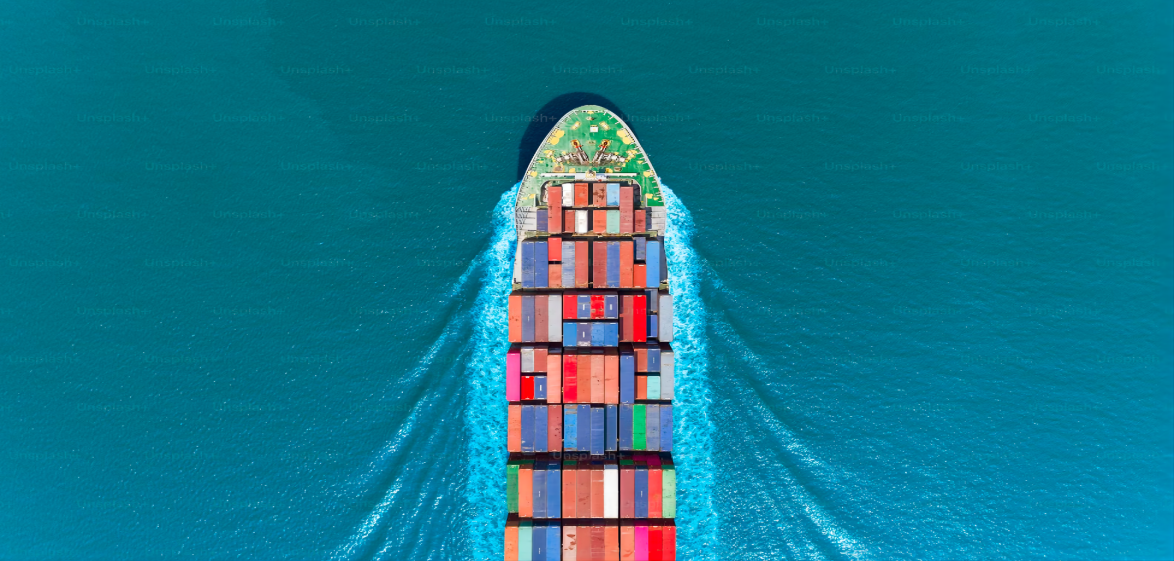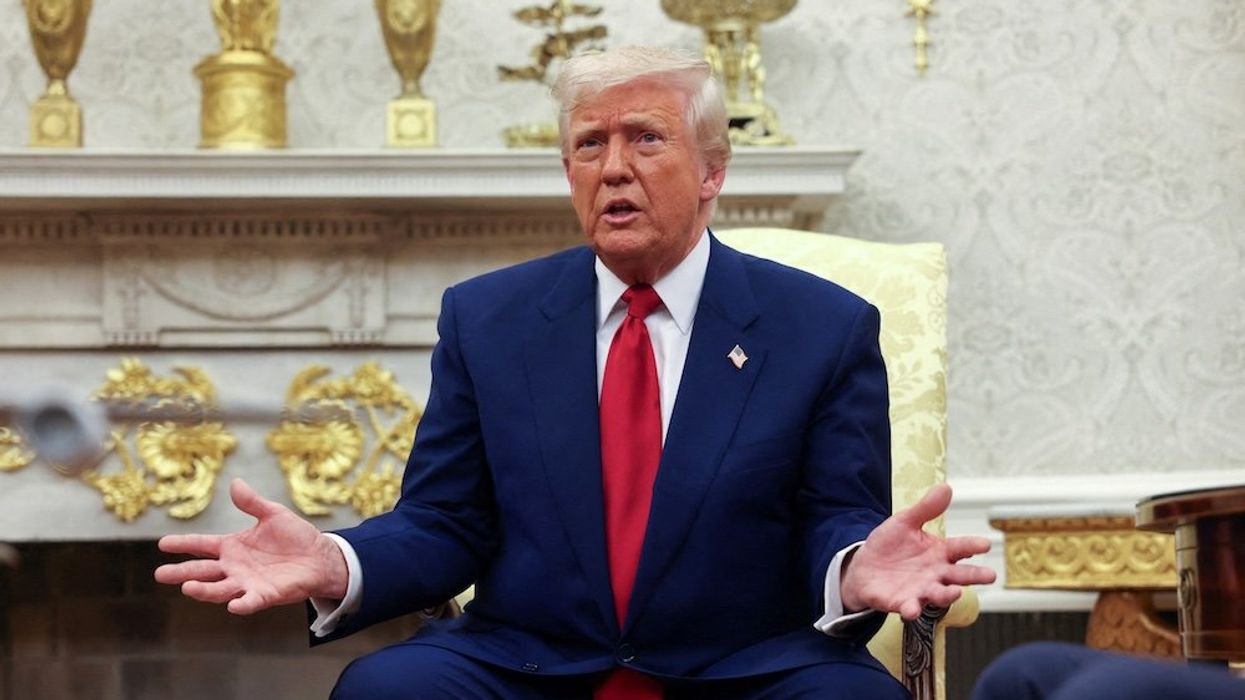"I gonna prove stocks will soar as me tariffs go up!"
“A trillion comments have been wasted accusing the wrong
people of Trump derangement syndrome. The real TDS afflicts those who keep
seeing a rational actor, or an economic chess game, where none exists. The
whole market arguably suffers from this syndrome. Shortly after plummeting on
Monday morning, a fake news release surfaced that said Trump would announce a
pause on his tariffs this week. The markets more than erased their opening
losses. All those gains, in turn, were wiped out when the White House issued a
denial. The merest rumor he might be sane can trigger a buying frenzy.” – Edward Luce, Financial Times, ‘Trump
Has No Idea What He’s Unleashed’
Stocks are facing another week of “elevated uncertainty about tariffs, their duration, and the potential for more retaliation,” said Carol Schleif, chief market strategist at BMO Private Wealth in Minneapolis, noting that investors are puzzling through what makes sense under new tariff regimes. But let's be clear, not even the market meltdown instigator of the greatest unforced economic error in history knows.
In a July, 2017 WSJ column ('Now May Be Time To Sell Stocks'), Mackintosh observes:
"Explanation is not the same as justification. The fact that everything
has been awesome recently is little guide to the future of the economy or
inflation - and the rise of stocks makes it less likely the general awesomeness
will continue."
So, in a sense, investors' belief that things will continue in the "awesome" mode is because they have been awesome the past year- is a twist on the classical logical fallacy known as Post hoc
ergo propter hoc . But when we have a psychotic and semi-senile president who spouts nonsense at will and can't tell a tariff from a tattoo, then no degree of forecast or confidence is possible. Because every financial datum has been tossed into a giant mixer allowing no certainty by which to make one's money placements or investments. Hence, in his most recent column (April 5-6, p. B4) Mackintosh argues the current market carnage could just be a start. Indeed, yesterday's onset of a meltdown was only halted - turning into an up-swing then diving again and more volatility - after a nitwit tweeted Trump planned a "90 day halt on tariffs." None of which was true.
But even before this fiasco, Mackintosh wrote (ibid.):
"The market carnage may be just the beginning. If the tariffs- in effect the biggest tax increase since at least the 1950s - cause the economy to shrink, stocks and Treasury yields still have a long way to go down."
He then points to two opposing forces in the markets, also displayed in the top graphic: "defensive stocks" and "cyclical stocks". As he describes the relationships:
"As recessions take hold, stocks are hit both by lower earnings and lower valuations. Defensive stocks - such as sellers of food and other staples, better able to maintain sales -beat those selling optional purchases, known as 'cyclicals'. Since the S&P 500 peaked in February, investors have moved fast to dump cyclicals and switch to defensives.
My measure of cyclical sectors which equally weights stocks within each sector, has lagged behind defensives by the most (over such a short period) since the March, 2020 Covid lockdown. The lowest rated junk bonds - most likely to default on tough times - have also been hit hard. Their extra yield above Treasurys has risen by more than 2 percentage points."
Recall here, that when bond yields rise, their prices fall. Mackintosh's point is that the market is currently playing 'catch up' in trying to price in a higher chance of recession. After all, "the S&P 500 is only down 12% from its all time high and back to where it stood in August."
Generally in a recession stocks "fall at least 20 percent and give up more than 7 months gains". This means that if the chances of recession are as high as some - like Jamie Dimon - estimate, there is a way to go before it manifests. But that also implies a much bigger drop (i.e. "carnage") is on the way. As Mackintosh puts it:
"Investors who think the return to tariffs is higher than the Smoot Hawley rates will hammer the economy into recession should expect much bigger falls in stocks and bond yields as 2025 goes on."
I am definitely in this camp- and following CBS finance expert Jill Schlesinger's advice yesterday- have advised all in the extended family ready to retire in 1-2 years to pull money from whatever stocks (especially tech) and put it into safe havens (i.e. cash, money markets). You won't become a millionaire, but then you also won't end up living in a box eating cat food and kibbles in your 'golden years'.
Mackintosh concludes with a heads up for the financial Pollyannas:
"Those who think the rest of the world won't seriously retaliate and that Trump will quickly negotiate the rates away will be happier with the higher prices. But even they ought to worry about the damaging effects of prolonged uncertainty on the economy."
Which is solid advice given no one, no sane person in his or her right mind - and who has any investments anywhere - should be betting on Dotard's logic, or capacity for any rational thinking to make sound decisions. The man is incapable of them, and is invested only in his own ego, and narcissism -fueled power trips, not the nation's welfare. So no wonder so many former pro-Trump billionaires are now calling the orange imp's moves "stupid", i.e.
Wall Street Bursts With Anger Over Tariff ‘Stupidity’ - The New York Times
Given no consistency of logic or reasoning exists in our "commander-in- chief" there can be no certainty on which businesses, citizens - or any other countries - can depend to make their own sound decisions. It is a giant Trump casino from day to day. Just ask the people in the Caribbean - including Barbados - who were informed (by Marco Rubio) - that U.S. aid may be cut if they continue to allow Cuban doctors in to give medical aid. Like Barbados did during the Covid pandemic, e.g.
Brane Space: Bravo To Cuban Doctors Now Helping Barbados In Its New, Critical Battle Vs. COVID
Let us say that Barbados PM Mia Mottley has not been pleased with the veiled threat. Nor will Bim take kindly to any tariffs exacted by the orange fungus impersonating a president.
See Also:
by Robert Reich | April 7, 2025 - 5:38am | permalink
— from Robert Reich's Substack

It’s hard to remember that only 10 weeks ago, the American economy was quite good, our foreign relations were on the whole positive, we were on the way to dealing with climate change with subsidies for wind and solar energy, and we still lived in a democracy.
Today, all that is disappearing. The economy is in acute danger, our relationships with traditional allies are collapsing, we’re subsidizing fossil fuel polluters, and we’re turning into a dictatorship.
This has happened in part because of Trump’s continuing creation of fake national emergencies.
He has declared foreign trade a national emergency and used the International Emergency Economic Powers Act of 1977 to raise tariffs to levels not seen since the disastrous Smoot-Hawley tariff of 1930.
And:
by Mel Gurtov | April 7, 2025 - 5:00am | permalink

A Scatter Gun Approach
The Trump tariff shock is going to take a bit of time to sink in, though stock markets worldwide have already sunk. Altogether, 60 countries have been slapped with at least 10 percent tariffs; those with large trade surpluses with the US will pay a much higher rate. Trump’s public argument was two-fold: force US trade partners with the highest surpluses to lower their tariffs on US imports, and encourage US and other multinational firms to move their manufacturing to the US.
Interestingly, the tariff announcement did not apply to Russia, North Korea, Cuba, and Belarus, supposedly because they don’t run a trade surplus with the US. Except that Russia does.
On the other hand, Japan, South Korea, Taiwan, Israel, Ukraine, and just about every other country, whether friend or foe, was not spared, with tariff rates ranging from 24 to 40 percent. Even Britain, whose prime minister had thought the invitation to Trump from the king for a visit would help put off a tariff increase, was not spared. Nor for that matter were several islands that are not countries and have no humans. Everyone must pay.
And:
by Carl Gibson | April 8, 2025 - 5:34am | permalink

President Donald Trump's tariff announcement last week has not only rattled financial markets, but even a group of far-right billionaires who have a history of supporting Republican causes.
The Guardian reported that both a far-right group funded by both multibillionaire Charles Koch and the Federalist Society's Leonard Leo is now suing to stop Trump's new trade duties on China from taking effect. The New Civil Liberties Alliance argued that Trump's invocation of the International Emergency Economic Powers Act (IEEPA) to justify his unilateral imposition of new tariffs is illegal, and that the courts should intervene based on precedent that requires Congress weigh in on certain policy-related matters.
“This statute authorizes specific emergency actions like imposing sanctions or freezing assets to protect the United States from foreign threats,” the organization stated. “It does not authorize the president to impose tariffs. In its nearly 50-year history, no other president – including President Trump in his first term – has ever tried to use the IEEPA to impose tariffs.”
» article continues...
And:
by Jianlu Bi | April 9, 2025 - 4:57am | permalink
— from Foreign Policy In Focus

Following the U.S. implementation of new reciprocal tariffs on Chinese goods, China’s swift and decisive imposition of a 34 percent tariff on American imports, coupled with tightened export controls on rare earths and the blacklisting of U.S. companies, underscores Beijing’s resolve to defend its economic interests against what it perceives as unilateral bullying. The timing and scale of China’s response, just days after the United States unveiled its own reciprocal tariffs, sends a clear message: Beijing is prepared to play hardball.
The notion that China would meekly acquiesce to Washington’s demands, even with the dangling carrot of a TikTok deal, has been soundly rejected. Instead, China’s actions signal a new era of economic confrontation, where reciprocal measures and targeted sanctions are the weapons of choice. The 34 percent tariff, effective April 10, represents a substantial blow to American exporters, particularly those in the agricultural and industrial sectors, and the suspension of sorghum and poultry product exports demonstrates China’s willingness to leverage its market power.


No comments:
Post a Comment